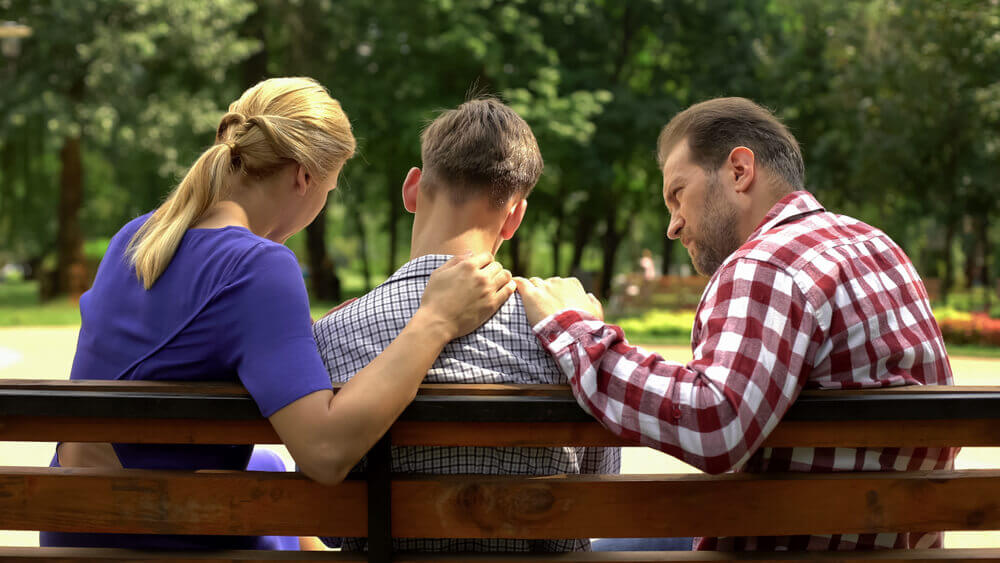As the crisp air of fall approaches and the holiday season draws near, it’s the perfect time to start thinking about your recovery journey and how to stay strong through the challenges that the holidays can bring. For those in recovery, the fall and holiday season can be a difficult time—filled with social gatherings, family events, and plenty of opportunities for triggers.
The good news? You don’t have to face it unprepared. Creating a sober plan before the holidays can help you navigate this busy time with confidence, ensuring that you stay on track and continue progressing in your recovery.
In this blog, we’ll explore how you can prepare for fall and create a sober plan that will help you thrive during the holidays, while also protecting your long-term sobriety.
1. Acknowledge the Challenges of the Season
Before diving into your sober plan, it’s important to acknowledge the challenges that fall and the holidays can present. The season can be filled with parties, gatherings, and pressures—whether from family or social expectations—that can increase your vulnerability to relapse. It’s easy to be surrounded by alcohol or drugs at family gatherings or social events, and the stress of holiday obligations can create emotional triggers.
By acknowledging these challenges up front, you can plan for them in advance and set yourself up for success.
2. Reflect on Your Triggers
Understanding your triggers is a key part of any sober plan. Take some time to reflect on the situations, people, or emotions that make you feel vulnerable to substance use. This self-awareness will help you prepare for the specific challenges you may encounter during the fall and holiday season.
Common triggers during this time of year may include:
- Family gatherings: The stress or emotional charge of spending time with family members can lead to old habits or cravings.
- Social pressure: Holiday parties or gatherings where drinking is the norm can feel isolating or overwhelming.
- Financial stress: The added financial burden of the holidays can lead to anxiety or the urge to escape.
Once you’ve identified your specific triggers, you can take proactive steps to manage them.
3. Build a Support System for the Season
Having a strong support system is one of the most important factors in maintaining sobriety, especially during challenging times. Before the holiday season begins, make sure you have a reliable group of people—family, friends, or support groups—who can offer encouragement, accountability, and a listening ear when needed.
Consider:
- Attending regular meetings: Whether it’s a 12-step meeting or another type of support group, attending regular meetings can provide a sense of connection and grounding.
- Reaching out to a sponsor or therapist: If you have a sponsor, therapist, or counselor, make sure to connect with them regularly during the holidays for extra support.
- Creating a support list: Write down a list of people you can call if you feel vulnerable, anxious, or tempted to use. Having this list ready can make it easier to reach out for help when you need it most.
A solid support system is your first line of defense when navigating the holiday season.
4. Set Clear Boundaries
During the holidays, you may feel pressure to attend certain events, spend time with specific people, or participate in activities that could challenge your sobriety. Setting clear and firm boundaries is essential to protecting your recovery. Be prepared to say no if an event doesn’t feel right for you, and don’t be afraid to remove yourself from situations that are uncomfortable or triggering.
Examples of setting boundaries include:
- Politely declining invitations: If a holiday party or family gathering isn’t aligned with your recovery goals, it’s okay to politely decline.
- Arriving early and leaving early: If you do attend social events, consider setting a time limit so you don’t feel overwhelmed or stuck in a potentially triggering environment.
- Creating a “buffer” plan: If you need to attend an event, have an exit strategy in place. Whether it’s texting a supportive friend or having an excuse ready, make sure you have a plan to leave if you feel uncomfortable.
Boundaries help you maintain control over your environment and your sobriety.
5. Practice Self-Care and Stress Management
The holidays can often bring increased stress, whether from family dynamics, financial pressure, or the sheer busyness of the season. Practicing self-care and stress management is crucial for staying grounded and focused on your recovery.
Some self-care practices to consider include:
- Mindfulness and meditation: Taking a few moments each day to center yourself through mindfulness or meditation can reduce stress and improve emotional regulation.
- Physical exercise: Regular physical activity can help manage stress, boost mood, and promote physical health.
- Quality sleep: Make sure you are prioritizing sleep and taking care of your body to keep your mind clear and your energy levels high.
- Healthy eating: Staying nourished with healthy foods can positively affect your mood and energy levels, making it easier to handle challenges.
Make self-care a priority in your sober plan to reduce the risk of stress triggering cravings.
6. Have an Alternative to Alcohol and Drugs
Social gatherings during the fall and holiday season often revolve around alcohol. Having an alternative drink in hand can help you feel comfortable in these situations without feeling pressured to drink. It also gives you something to focus on when socializing.
Some ideas for alcohol-free alternatives include:
- Sparkling water or soda with lime: A simple and refreshing alternative that can make you feel included in social situations.
- Non-alcoholic beverages: There are many non-alcoholic beers, wines, and cocktails available that can make you feel like you’re part of the celebration.
- Hot tea or coffee: Perfect for colder months, a warm beverage can keep you grounded and provide a comforting routine.
Having a plan for these situations will help you feel confident and avoid the temptation of old habits.
7. Focus on Gratitude
Finally, as you prepare for the holiday season, make it a point to focus on gratitude. Recovery isn’t easy, but it’s an incredible journey. Reflect on the progress you’ve made and the new opportunities in your life that sobriety has given you. Keeping a gratitude journal can help you stay focused on the positive aspects of your life, even during stressful times.
Consider listing things you’re grateful for every day:
- Your health and well-being
- The support of loved ones and your recovery community
- New opportunities and personal growth
Focusing on gratitude helps shift your mindset and keeps you grounded in the present moment.
Final Thoughts: Stay Prepared and Stay Strong
Preparing for the fall and holiday season in recovery requires planning, self-awareness, and a commitment to your sobriety. By creating a sober plan that includes reflection on your triggers, building a strong support system, setting boundaries, practicing self-care, and focusing on gratitude, you can navigate the challenges of the season with confidence.
Remember, the holidays are just another part of your journey—one that you can face head-on with the right tools and support in place. Stay strong, stay connected, and celebrate your progress as you continue to build a life of long-term recovery and fulfillment.




















